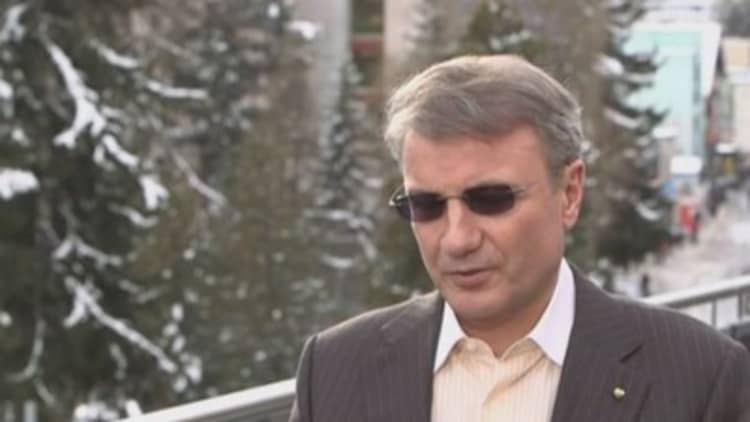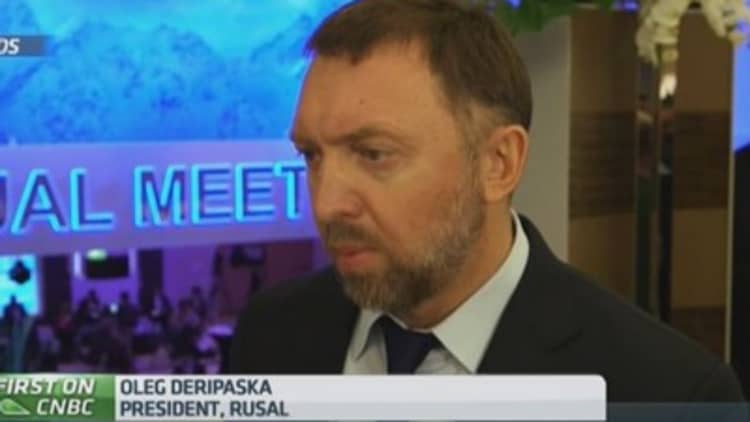
Sanctions from the West and the decline in the price of oil have led to fears for the stability of Russia's financial system, with high-profile business leaders from Russia warning that the country is facing a "dramatic" situation.
Herman Gref, the chief executive of Russian bank Sberbank, told CNBC that Russia's banking system would "certainly see the need for capitalization" if oil prices fell below $45 or $40 a barrel – not far from current prices.
"If you talk about oil being as low as it is, for example below $40, $45 dollars a barrel, then we will certainly see the need for recapitalization of the banking system," Gref, the head of Russia's largest lender, told CNBC Thursday on the sidelines of the World Economic Forum in Davos, Switzerland.
"We will certainly see the need for banks to build reserves, at around 3 trillion roubles, or $50 billion, as we estimate those need for reserves, and there will certainly be some bank failures. I do not exclude the possibility of some banks actually going bust, losing their cherished reliability," he warned.
Russia's economy is trapped in purgatory over the last year on the back of a decline in global oil prices – down some 60 percent since June 2014 – and due to economic sanctions placed on the country by the west as a result of its incursions into neighboring Ukraine.
Read MoreRussia braces for'junk' downgrade as oil drags
Capital ouflows, currency depreciation and lower oil revenues as a result have contributed to Russia's steep economic decline and the country is forecast to enter recession in 2015.
Responding to growing fears for the stability of the country's financial system, the country's banks second and third largest banks, VTB and Gazprombank, have been swiftly recapitalized.
On Thursday Russian Prime Minister Dmitry Medvedev said a government program to recapitalize the country's banking system should be completed by the end of the month, the TASS news agency reported.
Despite Russia's economic pressures, Gref believed that the Russian banking system was much better off and in a much better shape than in 2008 and believed that it was in a good position "to clear this adversity with reasonable comfort."
He was quick to point out that Sberbank itself would not need any equity or assistance but "if push comes to shove and Sberbank does need that kind of assistance, then the Central Bank of Russia has reserves needed to extend to us. But at this time, we see these things -- to be clear -- under control."

Russia's current situation not only stem from the decline in oil price and sanctions but on structural problems as well, Gref warned, a belief echoed by another Russian business leader, Oleg Deripaska, the president of the world's largest aluminum company, Rusal.
He told CNBC at Davos that it was "not clear" whether reforms would be accelerated. "It is reasonable to believe that such a stress for the public finances could add pressure (for the need to reform) but so far it's unclear (what will happen). First, we need to stop this conflict that has dragged us into this dispute with our neighbors," Deripaska said Thursday.
He believed that the oil price could stay around current levels – around $47 a barrel -- for a while. "We need to see a lot of correction before Russia and our government make a choice on what will be the next policy."
- By CNBC's Holly Ellyatt, follow her on Twitter @HollyEllyatt.






